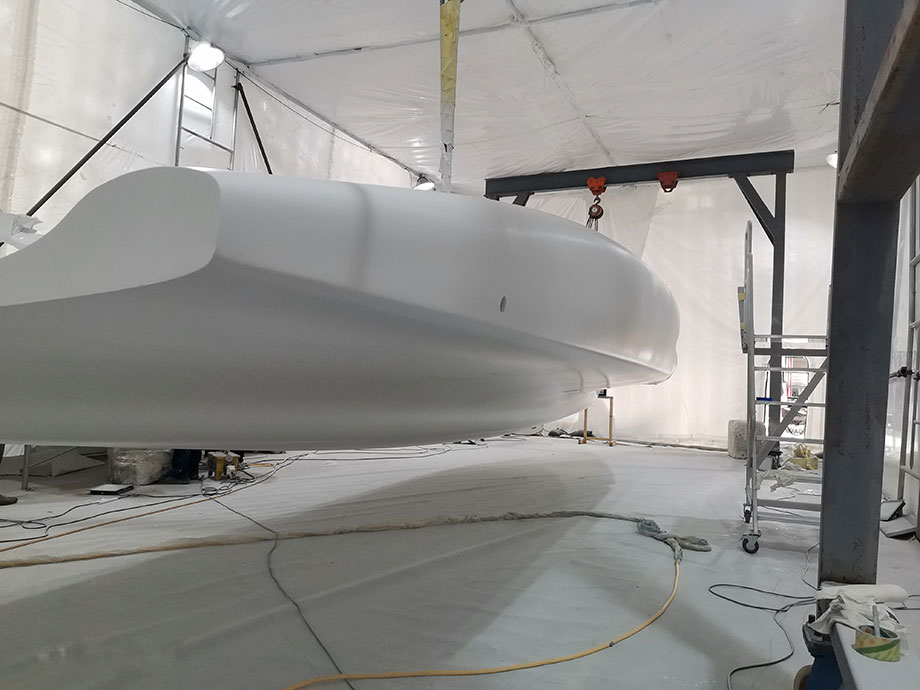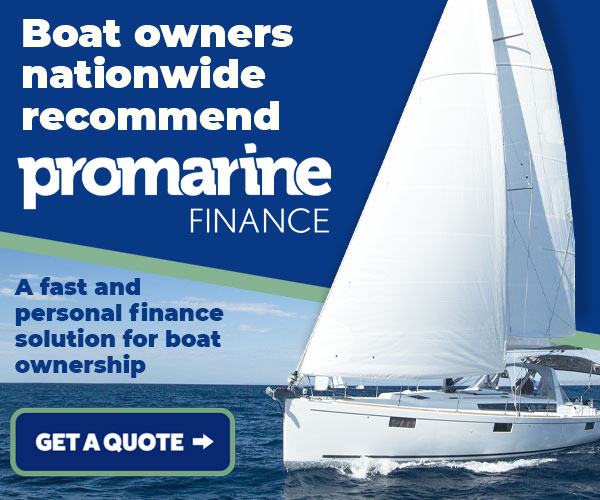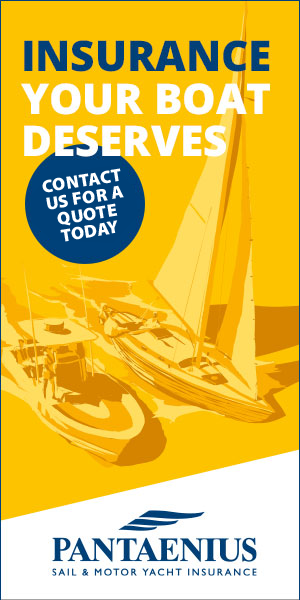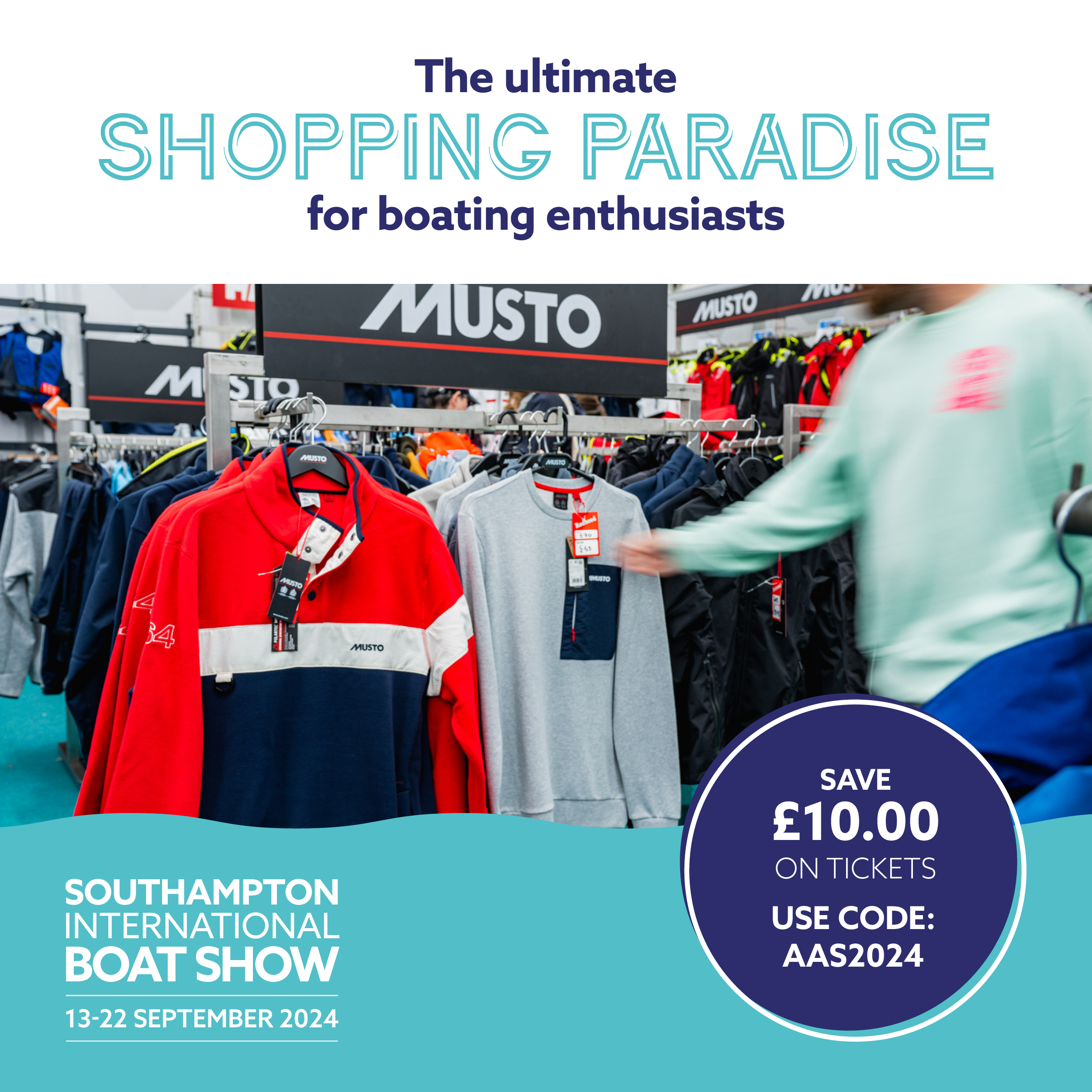With the news that the world’s first AC40 is just weeks away from being shipped to its new base in Auckland, expectation is ramping up.
“We did not hold back on the design,” was how Dan Bernasconi, chief designer of Emirates Team New Zealand put it, “we took the IP of Te Rehutai (the Cup winning boat from AC36) and translated it into the best 40-footer we could create.”
And as the first photos filter through from the build facility of this pocket-rocket that will be used in One Design mode for both the Women’s and Youth events as well as being a testbed for the works teams, it is an exciting time for the America’s Cup.
Very much off the boards of the Emirates Team New Zealand Technology & Design Department, the build of the yachts has been overseen by long-standing ETNZ team-member Richard Meacham whilst at the McConaghy factory in China, Jamie Thompson has been the project manager running a dedicated team of builders and craftsmen working shifts around the clock to create this next-generation vessel.
“It is a step on in terms of hull form from the Cup winning design of Te Rehutai,” said Richard Meacham, “that adheres to all the fundamental rule changes implemented for the AC75’s and we are looking at performance estimates way in excess of our training boat, Te Kahu, or any of the other teams’ test mules that they ran in the lead up to AC36.”
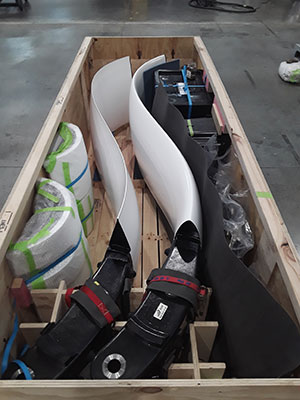
Building the hulls away from New Zealand was always going to be controversial to some but Richard Meacham is clearly impressed with the work overseen by Mark Evans and project managed by fellow kiwi Jamie Thompson at McConaghy’s: “We assessed the situation early on in the project, but it was clear that that with the scale and timeframe of the overall build of the fleet of AC40’s there was a shortage of boat-building labour for the hull builds in New Zealand, so we had to look overseas. McConaghy’s have been fantastic and very hard driving, but the key has been the Kiwi design and technology influence all the way through the process.”
Indeed, the hull, foil arms, rudders, mechatronics, hydraulics, and programmable logic controllers have all come directly from ETNZ’s design teams with the foil arms and rudders being created at ETNZ’s build facility on Auckland’s North Shore.
The boomless, double-skinned sails have been designed in collaboration with North Sails whilst the two-piece masts have been crafted by Southern Spars in Avondale, Auckland.
There are strict parameters and cost reduction measures with stipulations including: a maximum of four custom foil wings and four custom flaps. 10 custom jibs and four mainsails are permitted to be built. Teams will also be allowed to build just one custom mast in addition to the two-piece supplied as standard.
Down below, the auto-pilot controls the ride height only and can be manipulated, holding the wing at a certain set point below the water. If the teams want to change the pitch angle or trim differently for conditions, then there needs to be manual intervention whilst all foil cant operations during the high-speed manoeuvres are controlled by direct input from the crew.
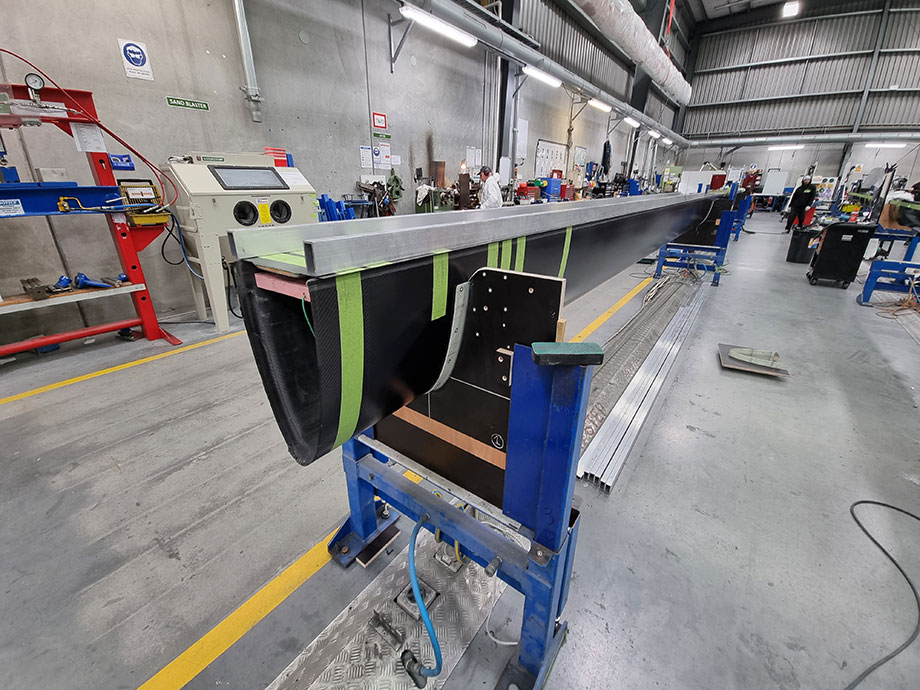
And one of the big considerations for the AC40 global circuit will be the ease of transportation. Each one will be transported on a custom flat rack which can carry the whole boat and all appendanges to save on shipping costs and increase transportation efficiencies.
With the first AC40 boat due to be sailing in the next few months and throughout the New Zealand summer, the subsequent AC40’s will be rolling off the production line for the main teams in quick succession, the coming months will be a fascinating period as the boats are brought up to speed and the pathway programmes for Women’s & Youth AC sailors confirmed.








